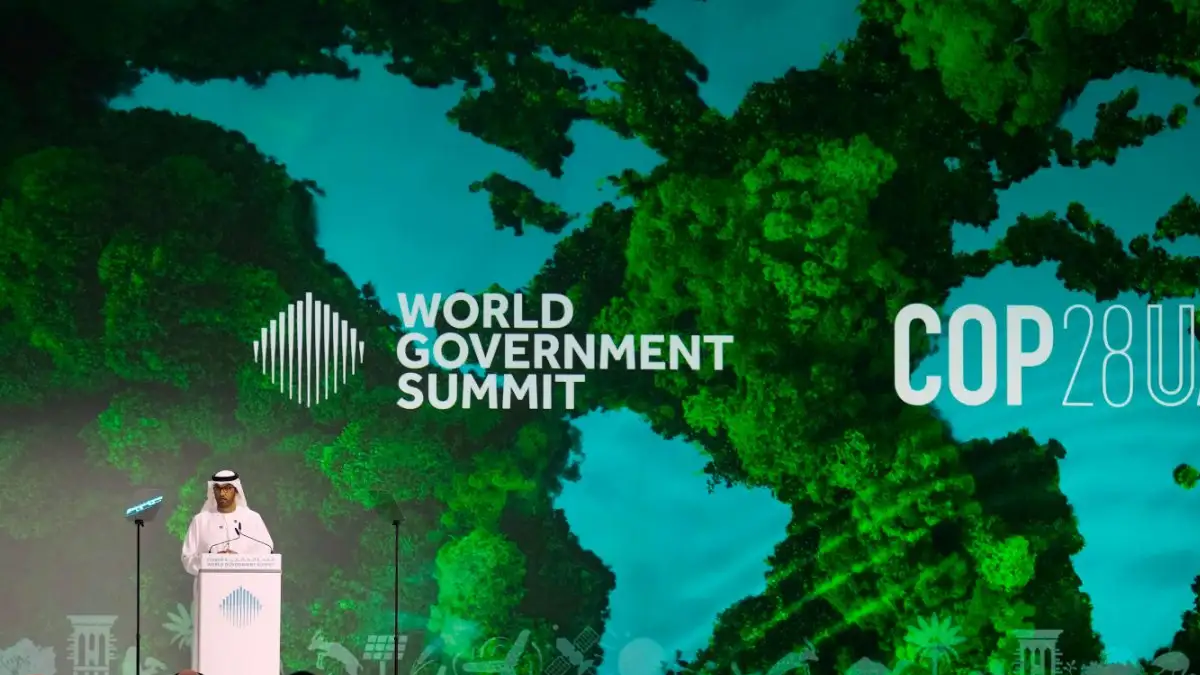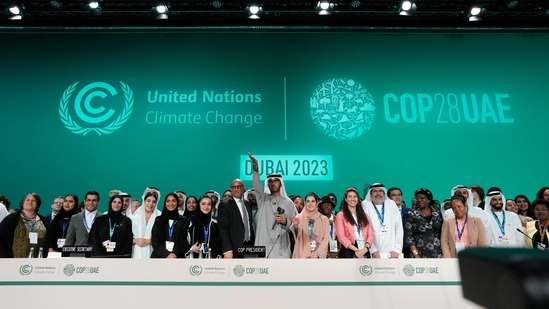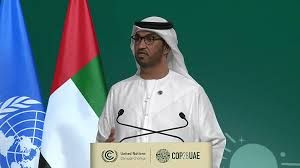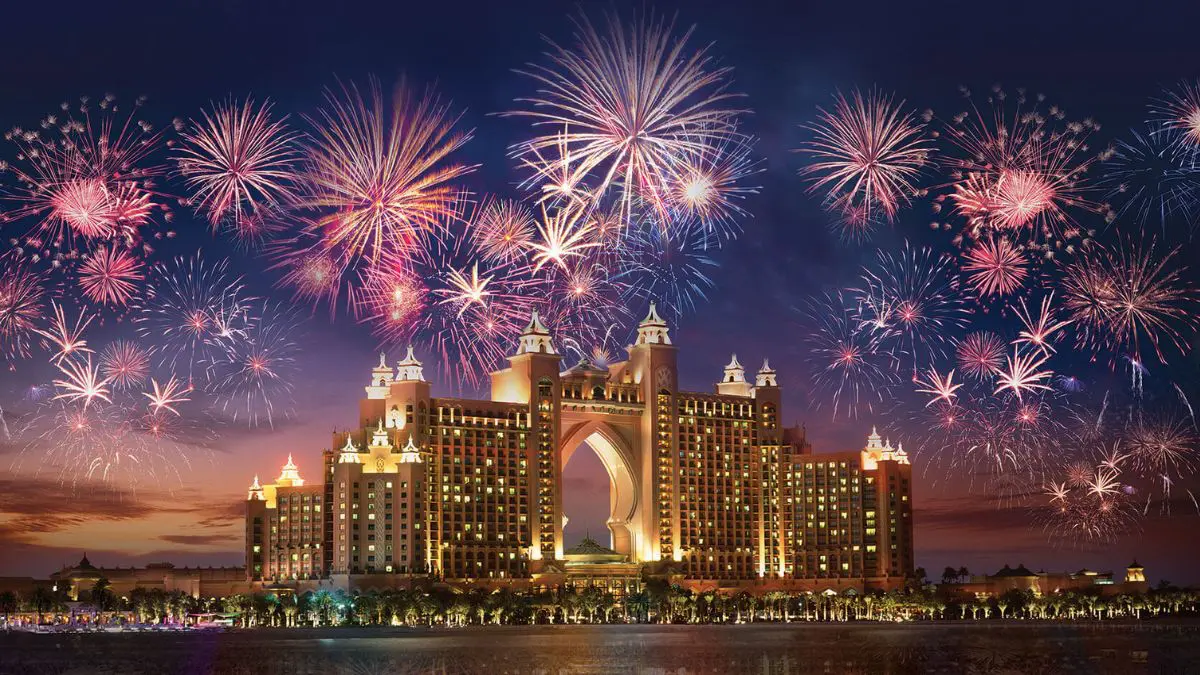Now Reading: UAE’s COP28 Delivers Strongest Climate Pact in History 2025
-
01
UAE’s COP28 Delivers Strongest Climate Pact in History 2025
UAE’s COP28 Delivers Strongest Climate Pact in History 2025

Table of Contents
The 28th United Nations Climate Change Conference (COP28), hosted in Dubai, United Arab Emirates (UAE), marked a major turning point in global climate action. After two weeks of intense negotiations, nearly 200 countries agreed to a historic deal aimed at speeding up the shift away from fossil fuels and limiting global warming to 1.5°C above pre-industrial levels.
The final agreement, called the UAE Consensus, was announced in December 2023 and is now seen as one of the most ambitious outcomes in the history of the climate talks. Here’s a clear and simple look at what the COP28 agreements mean for the world.
The UAE Consensus: What Was Agreed?

For the first time ever, the COP28 agreement includes direct language calling for a transition away from fossil fuels, which are the biggest cause of climate change.
Key points in the agreement:
- Transition away from fossil fuels in energy systems
All countries agreed to work toward moving away from coal, oil, and gas — especially in power generation — in a “just, orderly, and equitable manner.” - Tripling renewable energy by 2030
The pact sets a clear goal to triple global renewable energy capacity and double energy efficiency this decade. - Phasing out inefficient fossil fuel subsidies
Governments promised to stop supporting fossil fuels that do more harm than good, especially those that increase emissions. - Strengthening National Climate Plans (NDCs)
Countries must now update their national climate action plans by 2025 to reflect stronger commitments that align with the 1.5°C target. - Methane and non-CO2 greenhouse gases
There’s a new focus on reducing other powerful pollutants like methane, which is 80 times more harmful than CO2 over 20 years. - Climate finance for developing nations
Developed countries agreed to increase support to poorer nations, including contributing to the Loss and Damage Fund, which helps vulnerable countries recover from climate-related disasters.
Fossil Fuels Named for the First Time
In previous climate summits, fossil fuels were often avoided or only lightly mentioned. COP28 changed that. The agreement boldly included the term “fossil fuels” and called for countries to move away from them, especially coal, the dirtiest of all.
Although the language stopped short of calling for a complete “phase-out,” experts say it’s a big step forward.
Why this matters:
- It sets a global direction: The world is officially moving away from fossil fuels.
- It sends a message to investors and industries: Clean energy is the future.
- It increases pressure on major emitters like China, the US, and India to act faster.
Clean Energy Push: Renewables at the Center
A major success of COP28 was the global agreement to triple renewable energy — such as solar, wind, hydro, and geothermal — by 2030.
Currently, the world’s renewable energy capacity is around 3,400 gigawatts. Tripling that means reaching over 11,000 GW in just six years.
This shift will:
- Lower global emissions
- Create green jobs
- Reduce energy costs in the long term
- Make countries less dependent on imported oil and gas
Climate Finance: Helping the Global South
Another big topic at COP28 was climate finance — the money that richer countries provide to help poorer nations deal with climate change.
After years of promises, COP28 finally launched the Loss and Damage Fund, with over $700 million pledged on Day 1. While this amount is small compared to what’s needed, it shows progress.
Goals of the fund:
The Just Transition: Fairness for All
The COP28 agreement highlights that the shift to clean energy must be “just and equitable.” That means:
- Protecting workers in fossil fuel industries
- Supporting communities that depend on coal, oil, or gas
- Making sure that developing countries have access to affordable clean energy
The goal is to ensure that no one is left behind as the world goes green.
Mixed Reactions: Praises and Criticism
While many celebrated the outcome of COP28, not everyone was satisfied.
Positive responses:
- UN Secretary-General António Guterres called the deal a “step in the right direction.”
- Climate activists welcomed the inclusion of fossil fuels in the final text.
- Businesses and clean energy groups said it provides policy clarity and direction for future investments.
Criticism:
- Some countries, especially island nations, said the deal doesn’t go far enough.
- Activists noted that the agreement uses “soft language” like “transition away” rather than firm commitments.
- The oil and gas lobby’s influence at COP28 also drew concern, especially since the UAE, a major oil producer, hosted the talks.
🇦🇪 UAE’s Role as Host: A Balancing Act
The United Arab Emirates played a key role in shaping the COP28 agreement. Despite being an oil-rich nation, the UAE positioned itself as a bridge between fossil fuel producers and climate-vulnerable countries.
Dr. Sultan Al Jaber, COP28 President and head of the UAE’s national oil company (ADNOC), was a controversial figure but helped deliver the UAE Consensus through careful diplomacy.
Under his leadership, the talks stayed focused on:
What Happens Next?

COP28 is over, but the work has just begun. Countries must now:
- Update and strengthen their national climate plans by 2025
- Start implementing clean energy and efficiency measures
- Deliver on climate finance promises
- Monitor and report progress each year
With only a few years left to prevent the worst impacts of climate change, the COP28 agreements set the tone for this crucial decade of action.
Final Thoughts
COP28 may not have solved everything, but it marked a historic shift in climate diplomacy. By finally naming fossil fuels and setting clear goals for renewables, world leaders showed they are ready to act.
The UAE Consensus offers hope — but only if promises turn into real-world action.
Read More:- Deyaar’s Latest Announcement Shakes Up the UAE Property Market





















